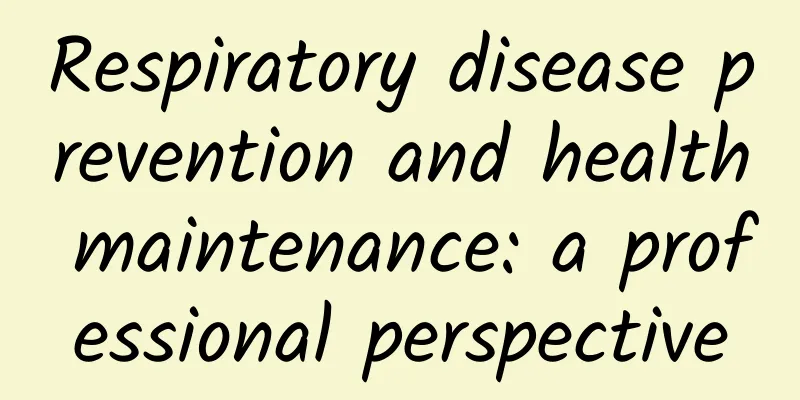Why do elderly people with dementia “change”?

|
This is the 2850th article of Da Yi Xiao Hu Case 1 After many twists and turns, Ms. Li brought her 85-year-old mother to the clinic and said with a tired face: Doctor, since my mother got Alzheimer's disease, her memory has been getting worse and worse, she speaks less, less than a word a day, and is dull. Overall, she was easy to take care of, but in the past month she has become like a different person. She doesn't sleep at night, makes a lot of noise, gets up in the middle of the night and flushes the toilet repeatedly. She also runs to the kitchen to turn on the gas and says she wants to cook. What's more exaggerated is that she has been walking around the house naked recently. How could she suddenly become like a different person? Case 2 Mr. Zhou sat in the consulting room, looking frustrated, begging the doctor to admit his 78-year-old father to the hospital. It turned out that Mr. Zhou had lived in a high-end nursing home for three years. One year ago, he was diagnosed with Alzheimer's dementia, which was a mild case, and his memory had deteriorated. But in the past half month, the director kept calling Mr. Zhou to report that Mr. Zhou suspected that his aunt had stolen his things and that his food was poisoned. He would spit at his aunt, beat her with a cane when he was angry, and shout at night, disturbing the elderly in the same room and unable to sleep. The nursing home hoped that Mr. Zhou could transfer his father to a specialist hospital for treatment as soon as possible. Mr. Zhou was also puzzled. Why did his father suddenly change? Both elderly people suffer from the same disease: Alzheimer's disease (AD). AD is the most common type of dementia. The main clinical manifestations of Alzheimer's patients are cognitive dysfunction, which mainly include: memory impairment (memory loss), visual space and orientation disorders (not knowing where you are, unable to find your home, etc.), speech disorders (repetitive, disorganized speech or even irrelevant answers) and intellectual impairment (decreased calculation ability, comprehension, judgment, etc.). Why did the elderly people mentioned above suddenly seem to have changed? In fact, it is because they have behavioral and psychiatric symptoms associated with dementia (BPSD). BPSD is one of the common symptoms in Alzheimer's patients. About 90% of Alzheimer's patients can show various BPSD at any specific time during the disease process. BPSD includes hallucinations, delusions, emotional indifference, depression, anxiety, agitation, roaming, aggression and other abnormal behaviors and changes in sleep rhythm. These symptoms are often also important factors that cause patients or their families to feel that the patients are abnormal and go to the hospital for treatment. The behavioral and psychiatric symptoms associated with dementia seriously affect the quality of life of patients, and also increase the physical and mental burden on caregivers. Many family members of dementia patients said that the hardest job is not to take care of the daily life of patients, but to face the behavioral and psychiatric symptoms and psychological pressure of dementia patients. What interventions can we make when patients with dementia show mental and behavioral symptoms? If the mental and behavioral symptoms are not serious, you can do the following: 1) Caregiver intervention Caring for patients with dementia is an arduous task, and the caregiver's emotions have a greater impact on the patient. Long-term counseling can be provided to the families of dementia patients, and professional training and education can be provided to caregivers to help them understand the disease and learn how to better care for dementia patients. 2) Emotional intervention During the entire process of the illness, family members should give appropriate care to the patients and eliminate their sense of shame and inferiority. Although nursing work is difficult and tedious, they should not repeatedly complain or scold the patients; at the same time, they should do a good job in caring for the elderly. 3) Environmental intervention The main thing is to improve the patient's living environment, including reducing stimuli that may induce negative emotional reactions and abnormal behaviors, such as reducing noise and avoiding quarrels. Caregivers can create a safe and harmonious environment for patients and try to help them relax. 4) Behavioral intervention It is necessary to clarify the cause of the patient's mental symptoms, and implement intervention by diverting the patient's attention based on the actual situation. Patients can be trained to engage in activities that help improve their mood and reduce abnormal behaviors, such as walking, Tai Chi, reading, painting, and handicrafts. When non-drug intervention is ineffective, the patient needs to be transferred to the geriatric psychiatry department for drug intervention to reduce the burden and distress of the caregiver. Drugs commonly used to treat BPSD include drugs to improve cognitive function, antipsychotics, antidepressants, benzodiazepines, and mood stabilizers. During drug treatment, the treatment effect and adverse reactions of the elderly should be closely observed, and the dosage should be adjusted in a timely manner. For the two elderly people mentioned in the article, after imaging examinations, laboratory tests and mental examinations, it was clear that the dementia had a tendency to worsen and the mental and behavioral symptoms were severe. Targeted drug treatment was given, and the caregivers were given adequate psychological counseling, emotional comfort and follow-up care suggestions. Both the patients and the patients received medical, nursing and psychological support, which not only treated the mental and behavioral symptoms of dementia patients in a timely manner, but also relieved the negative emotions of the caregivers, which greatly improved the quality of life of the patients. Author: Shanghai Changning District Mental Health Center Zeng Ting Attending Physician |
<<: What is the origin of the name of pistachio? Which is more nutritious, pistachio or peanut?
Recommend
What should I do if my uterine fibroids bleed?
Many women will find that after suffering from ut...
Consequences of nephritis in women
Not only men suffer from kidney disease, but wome...
How long should I take vitamin E after pregnancy
In order to ensure the healthy growth and develop...
Does biochemical pregnancy require uterine curettage?
A biochemical pregnancy is not the same as a misc...
What are the advantages of solar water heaters? How to choose a solar water heater
Solar water heaters are not affected by building ...
Is it good to soak your feet with moxa leaves during menstruation?
In people's eyes, mugwort is a particularly g...
Causes of yellow urine during early pregnancy
Many pregnant women in the early stages of pregna...
Can I eat barbecue when I am three months pregnant?
Nowadays, many people like to eat hot pot very mu...
Belly distension in early pregnancy
Many pregnant women in the early stages of pregna...
Endometrial thickening: curettage or taking Chinese medicine
If a woman has a thick endometrium, she should ad...
What to do with burn scars on face? A must-see for women who love beauty
Everyone loves beauty, and I believe no one would...
Can't help but step on the "empty pedal"? No kidding! Shaking your legs is really a good habit!
"Men shake their legs when they are poor, wo...
What is the relationship between ovarian follicles and menstruation?
Menstruation is very important for women. After m...









